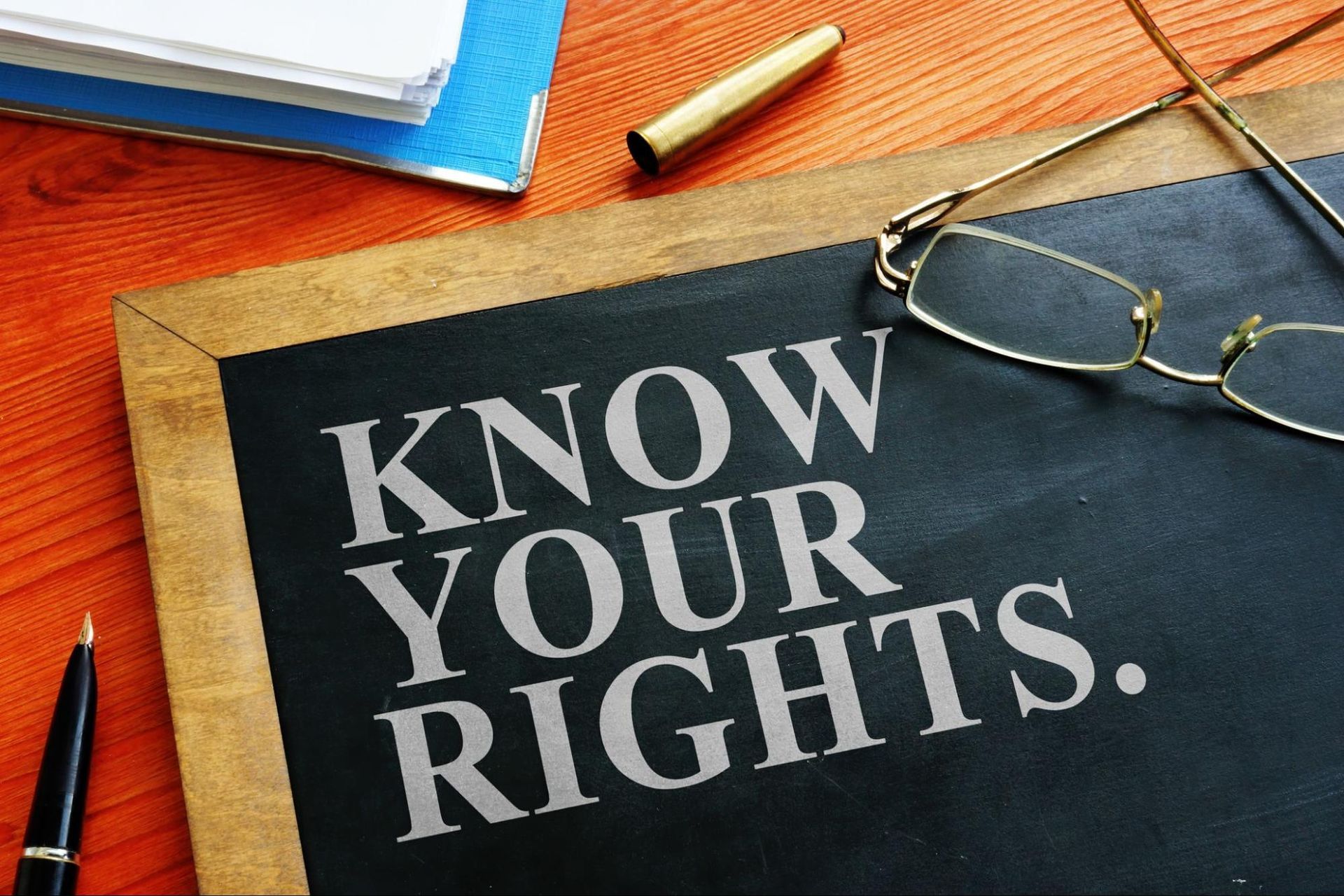PTSD & Long-Term Disability Benefits
As long-term disability lawyers, we know there are various types of injuries and illnesses, be it physical, psychological, or a combination of both that can render a person unable to work. One such condition is post-traumatic stress disorder.
This blog will discuss:
- What is Post-Traumatic Stress Disorder?
- What Are the Symptoms of PTSD?
- How PTSD Might Affect Your Ability to Work
- What to Know When Making a Claim for Disability Benefits
- Reasons an Insurance Company Might Deny Your Claim
- Why You Should Contact a Lawyer if Your Claim was Denied
What is Post-Traumatic Stress Disorder?
Post-traumatic stress disorder (PTSD) is a type of anxiety disorder that can develop after an individual has experienced, witnessed or been repeatedly exposed to a major trauma.
It is felt that certain types of professions including police officers, paramedics, firefighters and soldiers (collectively known as “first responders”) have higher rates of post-traumatic stress disorder compared to other professions.
PTSD is also a type of operational stress injury which is defined as any persistent psychological difficulty resulting from operational duties such as law enforcement, combat or any other service related duties. People who experience high levels of operational stress injury are at a greater risk of developing depression, anxiety or PSTD.
First responders are not the only group of people who are susceptible to PTSD. As PTSD is a response to traumatic life events, victims of car accidents, fires, violent crimes, workplace stress or bullying or who have witnessed a family member or friend or another person harmed or killed can develop PTSD.
Examples of trauma given by Anxiety Canada include exposure to:
- Actual or threatened death (i.e. war, a serious car accident, witnessed a murder)
- Serious injury (i.e. severe burns, extensive hospitalizations)
- Sexual violence
It is explained that exposure can mean:
- Directly experiencing the event
- Witnessed the event as it happens to others (i.e. a kidnapping)
- Learning that the trauma occurred to a close family member or close friend (note that actual or threatened death must have been violent or accidental for example witnessed a friend die in a car accident)
- Experiencing repeated or extreme exposure to aversive details of the event (for example, police offices being repeatedly exposed to victims of violent murders)
Not everyone who experiences a traumatic event will develop PTSD but many factors play a part in whether or not someone will develop the disorder. According to the Centre for Addiction and Mental Health, factors like having experienced previous trauma, having a history of mental illness or post-traumatic stress disorder, having little or no social support after the traumatic event or experiencing other stressors after the event increase a person’s risk of developing PTSD.
What Are the Symptoms of PTSD?
According to the Centre for Addiction and Mental Health, symptoms of PTSD can include:
- Relieving the event/re-experiencing the event over and over again
- Avoiding reminders of the event/the scene of the event
- Fear that something bad is going to happen
- Constant worrying
- Recurrent nightmares
- Avoidant behaviours (staying away from activities, people, places that remind you of the event)
- Difficulty getting along with people
- Loss of interest in activities you used to enjoy
- Difficulty with feelings of love and pleasure
- Difficulty concentrating
- Easily angered
- Difficulty sleeping (falling asleep & remaining asleep)
- Sudden attacks of dizziness, fast heartbeat or shortness of breath
- Fear of dying
appears to be an empty link with target https://www.ontario.ca/page/2019-novel-coronavirus
How PTSD Might Affect Your Ability to Work
The symptoms of post-traumatic stress disorder can be debilitating and cause significant functional impairments. PTSD affects your ability to sleep, focus and concentrate, ability to interact with others, ability to focus and concentrate, ability to participate in society and to function in general.
When sleep is impaired, the ability to focus and concentrate is impaired and memory is affected. Some people become severely depressed and anxious, and some people may develop physical symptoms.
Symptoms of post-traumatic stress disorder can impact your ability to perform physical work, safety sensitive work and sedentary work.
What to know When Making a Claim for Disability Benefits
Mental illnesses like post-traumatic stress disorder are often misunderstood by insurance companies.
PTSD falls into the category of illnesses/conditions that are often described as “invisible illnesses” or “invisible disabilities (think mental illnesses, fibromyalgia and chronic pain conditions). This is because objective tests like x-rays and bloodwork cannot confirm your diagnosis or provide proof of/an explanation for all of your symptoms, making it a challenge to prove your inability to work to your insurer.
If you have PTSD and are applying for short-term or long-term disability benefits, you should document how your treatment is going with your doctor, specialist or therapist and follow the treatment recommendations. Even if your claim is denied, it is always important to continue your treatment. These are important steps for your claim.
Reasons an Insurance Company Might Deny Your Claim
You may receive a letter from your insurance company telling you your application has been denied or your benefits are being terminated for one or more of the following reasons:
- No medical information has been received
- Medical information was not submitted in time/by the deadline provided
- You are not receiving appropriate treatment or being treated by the appropriate doctors or specialists in the insurer’s opinion
- You should be able to work while continuing your treatment/receiving treatment would not interfere with your ability to work
- There are no medically supported restrictions or limitations
- You are outside of the “maximum recovery guidelines” according to the insurance company’s medical consultant
- You have a pre-existing medical condition relating to your disability or causing your disability and you have been insured for less than 1 year under the group plan
- You should be able to work in a sedentary position (if your own occupation is physical in nature)
- You do not have the ability to work in your own occupation, but you should be able to work in an alternate occupation and you are now in the any occupation period
- You did not participate in a rehabilitation program or gradual return to work program that was arranged for you and the insurer feels medical evidence does not explain why you are unable to participate
What You can do if Your Claim is Denied
Receiving a denial letter can be upsetting and frustrating. The terminology used in the letter may be unfamiliar to you and you may want clarification as to what certain terms mean and what your next steps should be.
Your insurance company gives you the option to appeal their decision through their own internal process (you can usually have up to 3 chances to appeal). You might go through all levels of appeal and not achieve the result you desire.
An experienced disability lawyer can help you understand what your rights are and what your options are. You can retain a lawyer as soon as you receive a denial letter and commence a court action. You do not have to wait to exhaust all appeal levels before you hire a lawyer and commence a lawsuit. Your lawyer can start a lawsuit and get your case into the court system as soon as possible.
We offer a free initial consultation that can be arranged at a date and time of your choosing and at your convenience.
Recent posts from our Knowledge Centre


- This blog is for informational purposes only and is not meant to substitute legal advice. Please read our disclaimer for further information.
- All of our lawyers are licensed by The Law Society of Upper Canada
- Office in Toronto and able to represent people in the province of Ontario
No Upfront Legal FeesNo Bad Questions
Footer
Thank you! Your request for a free consultation has been sent to our legal team.
We will do our best to contact you within 24 hours. We look forward to speaking with you!
Please try again later
1120 Finch Avenue West, Suite 500
Toronto, ON Canada M3J 3H7







